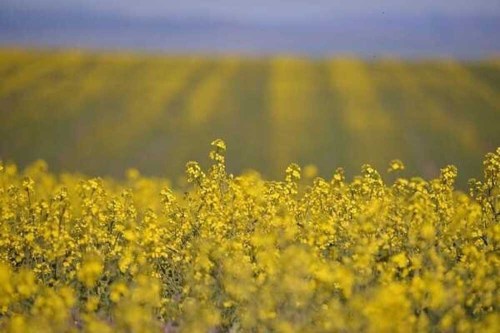Oregon lawmakers again face debate on 500-acre canola limit
Published 4:45 pm Wednesday, March 8, 2023
Lawmakers are considering permanently restricting canola cultivation in Oregon’s Willamette Valley to 500 acres, a limit initially set a decade ago to enable research on the crop.
Though that study ended six years ago, concluding canola poses no greater hazard to contaminate specialty seed crops than related plants, the 500-acre cap has endured along with the controversy over the crop’s regulation.
Trending
Previous legislation has twice extended the acreage restriction, but Senate Bill 789 would now impose it in perpetuity, which supporters characterize as a lasting compromise to minimize conflict among canola and specialty seed producers.
“I’m here to carry the message that this is what coexistence looks like,” said Charles Ortiz, representative of the Willamette Valley Specialty Seed Association, during a March 8 hearing on the bill.
The bill’s opponents say confining canola production to 500 acres is arbitrary, particularly since radish and turnips are grown for seed without restriction — despite being just as liable to genetically contaminate the region’s Brassica specialty seed crops.
“Senate Bill 789 is not about agricultural coexistence but it is about agricultural control by a few specialty seed companies,” said Rep. Ann Scharf, R-Amity, who’s family raises canola and other crops.
Effectively, the state government is acting as the “legal strong arm” to manipulate the free market in favor of the specialty seed industry, she said. “It is wrong and it is pushing the boundaries of fair trade practices and the right to farm.”
As a broadleaf plant, canola offers agronomic value in field rotations that help disrupt and better control pests and diseases in grass seed production. It’s also freely traded as a commodity crop, allowing farmers to get paid more quickly after delivery and to use the futures market to lock in prices.
Trending
However, the specialty seed industry fears the genetic threat from widespread canola cultivation would degrade the Willamette Valley’s status as a premier growing region for Brassica seed crops, including broccoli, cabbage and cauliflower.
Apart from the potential for cross-pollination, specialty seed companies have raised the possibility that problems faced by Brassica plants, such as the blackleg fungus, would become more pervasive if canola were produced on a large scale.
Canola’s supporters hoped these concerns would be eased by an Oregon State University study commissioned by lawmakers for nearly $700,000 in 2013, which permitted 500 acres to be planted annually.
The peer-reviewed study was led by Carol Mallory-Smith, an OSU weed science professor, who determined that no pests, insects and diseases are unique to canola and that it’s not weedier or more persistent that other common Brassica crops.
“The expansion of canola beyond the 500 acres is reasonable and feasible,” Mallory-Smith testified during the recent hearing on SB 789.
Despite these findings, the specialty seed industry has continued to oppose increasing canola acreage, joined by advocates for organic agriculture who worry that genetically engineered varieties of the crop will be introduced to the region.
For specialty seed companies, unregulated canola planting is akin to second-hand smoke from cigarettes — people have the right to inhale the smoke themselves but not to damage others with it, said Kenny Smith, an agronomist with Universal Seed in Independence, Ore., and WVSSA’s president.
If canola cross-pollinates with vegetable seed crops, “the end product will not look like the picture on the package” that’s anticipated by farmers and gardeners, Smith said. Falling short of such expectations would undermine the Willamette Valley’s standing as a reliable seed production area.
“Like any reputation, once damaged it’s almost impossible to restore,” he said.
The Organic Seed Alliance and Oregon Organic Coalition commissioned an economic report that claims unrestricted canola planting would likely eliminate Brassica seed production without making up for the financial losses in production value and labor income.
Allowing the 500-acre cap to expire this summer without new legislation would invite such serious economic instability, according to the bill’s supporters.
“Without SB 789, we would see the opening of the floodgates to unlimited canola production,” said Sarah Kleeger, an organic seed grower near Sweet Home, Ore.
However, canola supporters have objected to numerous claims in the study, which was not peer reviewed, alleging it underestimated canola revenues, inaccurately assumed varieties would be genetically engineered and exaggerated the risks of cross-pollination, pests and diseases.
Kathy Hadley, who grows canola near Rickreall, Ore., said she was “incredibly disappointed with its inaccuracies and omissions” after providing information to the study’s author.
“This was obviously pre-determined,” she said.










